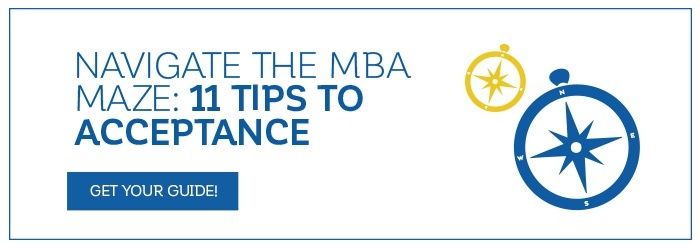
In deciding whether to apply to specific MBA programs, you need to understand how the schools differ. What are their relative strengths and weaknesses? It isn’t easy to get a real sense of what makes a school unique: they all claim top faculties, great student bodies, and professional networks that will sizzle when you graduate.
How can you tell the differences among these programs?
Follow these steps to do your research:
- Study their employment profile. See where graduates find jobs. Which schools send the most grads to the companies, industries, and locations you are most interested in?
- Class profile. Do you want a large class or a small, close-knit class? Do you want an urban or rural setting? Do you really want to be in a class that draws over 70% of its students from engineering, business, and technical fields? Or would you prefer to be in a class where 46% came from the social sciences and humanities? Both MIT and Stanford provide outstanding MBA educations, but their class make-up is very different. Consider the elements and features of a given class and decide which environment will appeal to you most.
- Curriculum. Would Harvard’s rigid first year curriculum, where everyone takes the same classes, chafe? Or would you be lost with all the options at Chicago, which prides itself on its flexibility? Do you value the option of skipping prerequisites? Do you want a lot of teacher cooperation and integration of business functions, as is provided by Tuck or Yale?
- Methodology. If you prefer a mix of methodologies, check out Wharton. If you like an emphasis on projects and hands-on learning, check out Ross. Do you want a strict case method? Take a closer look at HBS and Darden.
- Clubs and extra-curriculars. Many schools have imitated MIT Sloan’s business plan competition. But not everyone has a social enterprise competition (HBS does). If you are interested in social enterprise, that competition may be particularly appealing.
What are some of the unusual clubs at the different schools that would appeal to you? For example, almost every school will have a Marketing Club, but only some, like Columbia, will have a Luxury Goods Marketing Club. Take some time to notice the variety of active clubs at the programs you are considering.
- Professor research. A school may have a professor or two who are magnets pulling you to that program, perhaps for their well respected research in a niche that appeals to you. Are there independent study opportunities (with these professors)? Do these profs teach MBA students? If so, what classes?
- “Fit.” Then there is that almost indefinable quality called “fit.” This consists of several factors, including understanding your target school’s mission, values, and criteria; proving you can perform to their standards; sharing the school’s values and its mission; and showing that the program can help you achieve your career goals.
To determine fit, visit the schools you are considering if at all possible. If a visit isn’t feasible, talk to current students, read MBA student blogs, and follow the student newspapers. Grasping points of difference will enable you to make more intelligent application and acceptance decisions.
If you can get to campus, here are some visiting-day tips to maximize your experience:
- If possible, visit when class is in session. Then take a tour, chat with students, and attend the info sessions. Take advantage of whatever is offered on campus to help you get a realistic feel for the environment.
- Prepare for your visit by going through the school’s website thoroughly. It’s not a good look when you ask a question that is answered three times on the school’s site.
- As you review the school website, write down any questions that you may have and take them with you.
- If you can’t visit the school, attend receptions or info sessions that will be held in your city. Bring your written questions so you don’t forget any of them.
Visiting schools is only part of the planning and strategizing that you’ll need to do when applying to business school. Check out Accepted’s MBA Admissions Consulting Services for individual guidance through the entire application process. Visit schools. Create a winning application. Get ACCEPTED!
 For 25 years, Accepted has helped business school applicants gain acceptance to top programs. Our outstanding team of MBA admissions consultants features former business school admissions directors and professional writers who have guided our clients to admission at top MBA, EMBA, and other graduate business programs worldwide including Harvard, Stanford, Wharton, Booth, INSEAD, London Business School, and many more. Want an MBA admissions expert to help you get Accepted? Click here to get in touch!
For 25 years, Accepted has helped business school applicants gain acceptance to top programs. Our outstanding team of MBA admissions consultants features former business school admissions directors and professional writers who have guided our clients to admission at top MBA, EMBA, and other graduate business programs worldwide including Harvard, Stanford, Wharton, Booth, INSEAD, London Business School, and many more. Want an MBA admissions expert to help you get Accepted? Click here to get in touch!
Related Resources:
- 7 Steps to MBA Acceptance, watch the webinar
- Business School Selectivity Index, find out where you are a competitive applicant
- What Should You Do If You Can’t Visit B-Schools in Person?
The post Shortlisting and Visiting Business Schools appeared first on Accepted Admissions Blog.


No comments:
Post a Comment